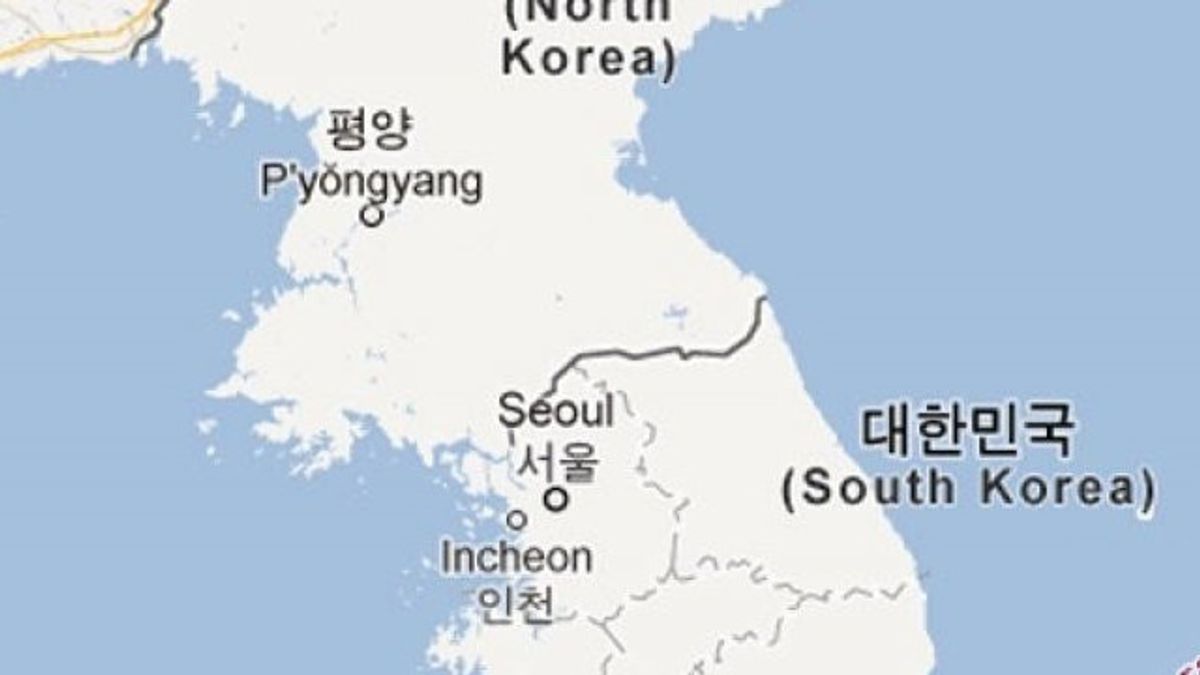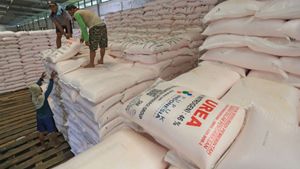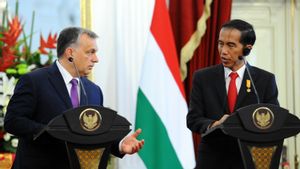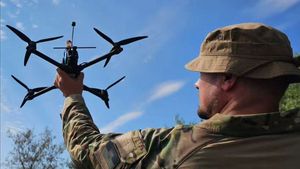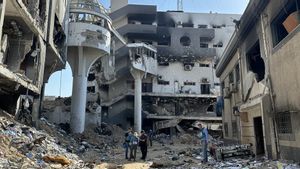JAKARTA - The South Korean military, Sunday, broadcast propaganda broadcasts by broadcasting K-pop songs and news through loudspeakers across the North Korean border to increase psychological attacks, following North Korea's repeated balloon attacks of garbage. The move comes five days after Kim Yo-jong, North Korean leader Kim Jong-un's sister, warned of "terrible and painful consequences" consequences for a sustainable leaflet campaign seen as sustainable leaflet campaign. North Korea as a psychological war. North Korea then sent more than 2 thousand balloons filled with garbage to South Korea nine times in retaliation for balloon attacks containing anti-Pyongyang leaflets sent by North Korean defectors to the country. "As we have warned many times, we will broadcast with full-scale loudspeakers at all border angles starting at 1 pm," said the Joint Chiefs of Staff (JCS) in a notification to reporters. Broadcast The propaganda usually contains news, and messages urging North Korean soldiers near the border to flee to South Korea, as well as in the form of K-pop songs, including the songs "Dynamite" and "Butter" from the K-pop band BTS. Earlier that day, South Korea broadcast some broadcasts using loudspeakers for the fourth day in a row. The broadcast starts at 6 a.m. and will end at 6 a.m. and will end at 10 p.m. (local time), according to "The North Korean military action that increases tensions in front-line areas can have fatal consequences, and we firmly warn that all responsibility for the situation is being carried out by the North Korean regime," the JCS said. They also added that it was closely monitoring North Korean activities under the South Korean-US defense posture. Meanwhile, earlier on Tuesday the Korean Central News Agency (KCNA) reported that Kim Yo-jong, who is also deputy department director at the Workers' Party In power, said North Korea would definitely change their response method if defectors continued the leaflet attack on North Korea. "We again gave them a stern warning. They must be prepared to bear dire and expensive consequences," Kim said in a statement broadcast by KCNA. In 2015, the two Korean countries were briefly involved in artillery fire fighting in the western region of the border due to propaganda attacks using Seoul's loudspeakers. The reply to the North Korean landmine attack, which injured two South Korean soldiers. North Korea later expressed regret over the attack and South Korea agreed to stop broadcasting anti-Pyongyang. JCS said on Sunday that North Korea was again launching a balloon suspected of bringing garbage to South Korea. The last-labored balloon appeared to be flying towards the northern part of Gyeonggi Province around Seoul, and the public was advised not to touch the balloon that had fallen and report it to the side. military or police. South Korea continued its anti-Pyongyang broadcast via loudspeakers at the border on June 9, for the first time in six years. However, the loudspeaker was turned off the next day in an apparent attempt to prevent the situation from getting out of control. On Thursday, South Korea restarted propaganda broadcasts via loudspeakers to North Korea in response to repeated waste balloon attacks on South Korea.North Korea propaganda uses loudspeakers and anti-Pyongyang leaflets for fear of incoming information from outside could pose a threat to Kim Jong-un's regime.
SEE ALSO:
In 2014, the two Korean countries engaged in a gun battle with an engine gun on the border after North Korea appeared to be trying to shoot down a balloon carrying propaganda leaflets criticizing North Korea. North Korea attacked an inter-Korean liaison office in North Korea's border town, Kaesong, in 2020, as a form of anger over anti-Pyongyang propaganda leaflets sent by balloons by North Korean defectors in Seoul.
The English, Chinese, Japanese, Arabic, and French versions are automatically generated by the AI. So there may still be inaccuracies in translating, please always see Indonesian as our main language. (system supported by DigitalSiber.id)
